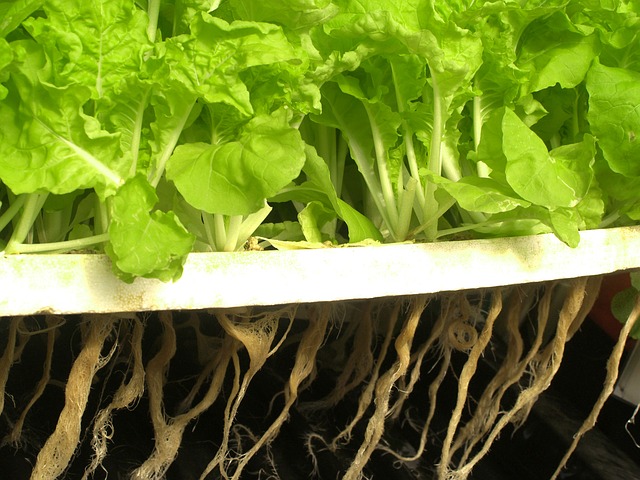March 21, 2018
Larry Ellison, the billionaire founder, chairman, and CTO of Oracle, is behind the launch of Sensei, a Los Angeles-based wellness brand that will begin its life as a hydroponic farming startup.
Partnering with Ellison in the endeavor is his friend David Agus, a professor of medicine with the University of Southern California and the director of the Lawrence J. Ellison Institute for Transformative Medicine.
Driven by the death of mutual friend Steve Jobs, the pair decided to start Sensei as a vehicle for wellness, and have decided that the company will initially strive toward this goal through hydroponic farming.
Together, Ellison and Agus plan to build 10 greenhouses covering 200,000 square feet on the Hawaiian island of Lanai, which Ellison purchased in 2012 for $300 million. However, unlike other vertical or hydroponic farming operations, instead of measuring output by volume, Sensei will measure nutrition per acre.
The operation will employ solar power by Tesla, cutting-edge software, and will use approximately 10 percent of the water necessary for traditional agricultural production to produce high quality foods grown from “original seeds”, hinting to the likelihood that the company will use only non-GMO seeds. The day-to-day business will be headed by Daniel Gruneberg, president of Sensei.
The Indoor Draw
Sensei not only touches upon sustainable agricultural production, but also counters the multiple challenges faced by the food production industry.
Since 1982, 24 million acres of U.S. farmland have been lost to development, and the loss continues at a rate of 40 acres of farm and ranch land every hour, according to the American Farmland Trust. More specifically, the California Climate & Agriculture Network states that California, one of the top-producing agricultural states in the country, has lost an average of 50,000 acres of farmland each year for the past 30 years due to urbanization and development.
It is the ability of indoor farming to meet and alleviate these challenges that are driving the market to have an expected CAGR of 30.7 percent between 2015 and 2020, to reach a value of US$3.88 billion by 2020, according to ReportsnReports.
Virtually unheard of only a few years ago, the production of food utilizing highly controlled, closed hydroponic systems has seen startups evolve on multiple continents and is beginning to gain investor attention.
Canada-based TruLeaf – a company that has leveraged farming technologies to create an indoor production system for leafy greens called the Smart Plant System – plans to produce basil, arugula, kale, spinach, and its own east coast salad mix for year-round supply to retail outlets.
Paris-based container farming startup Agricool announced in December 2016 that it had raised $4.3 million in a round led by recently launched French venture capital firm Daphni, along with Henri Seydoux, the founder of drone company Parrot, and Jean-Daniel Guyot, co-founder of Captain Train.
And Boston-based Freight Farms is the developer of the Leafy Green Machine, a complete vertical, hydroponic farming system built inside a shipping container that is capable of growing a range of lettuces, herbs, and hearty greens, and has a production capacity equal to 1.8 acres of farmland.
Last year the investment numbers in the sector began to get noticeably larger. In June 2017 high tech indoor, ‘post organic’ vertical farming startup Bowery Farming announced it had raised $20 million in a Series A1 co-led by General Catalyst and GGV Capital, and including GV, First Round Capital, and other seed round investors, and in July of last year San Francisco-based indoor vertical farming startup Plenty raised the largest agtech funding round in history – a $200 million Series B led by SoftBank Vision Fund – the $93 billion all-stage tech fund headed by Japanese billionaire Masayoshi Son. Other participants in the round include affiliates of Louis M. Bacon, the founder of Moore Capital Management, and existing investors Eric Schmidt’s Innovation Endeavors, Finistere, DCM, Data Collective, and Bezos Expeditions.
Tech Pilgrims
Ellison is not the only pilgrim from the tech sector to see the potential for not only societal, environmental, and nutritional improvement, but return on investment in vertical farming.
In August 2016, Kimbal Musk, younger brother of Tesla and SpaceX founder, Elon Musk, and his business partner, Tobias Peggs, announced the launch of Square Roots– a new accelerator for urban, vertical farming startups.
Cornerstone investors and backers of the accelerator include Los Angeles-based Powerplant Ventures, Lightbank, FoodTech Angels, GroundUp, Techstars CTO Jud Valeski, and Ann Marie Gardner, the founder of Modern Farmer.
One year later in August 2017 the accelerator closed on a funding round of $5.4 million led by New York-based Collaborative Fund that committed $2 million.
This was followed by the announcement that Kurt Kelty, the former director of battery technology for Tesla, had joined vertical farming startup Plenty Inc as the senior vice president of operations and market development.
Indeed, Ellison is not the only investor in hydroponic farming on the islands of Hawaii either. In July 2015 Honolulu-based Ulupono Initiative, a social impact investment firm founded by eBay founder, Pierre Omidyar, announced an investment of an undisclosed amount in Hydroponics Alternatives Farms LLC, a hydroponic farming venture on Oahu.
-Lynda Kiernan

Let GAI News inform your engagement in the agriculture sector.
GAI News provides crucial and timely news and insight to help you stay ahead of critical agricultural trends through free delivery of two weekly newsletters, Ag Investing Weekly and AgTech Intel.




